The 10 Hottest New DevOps Tools And Technologies Of 2019
These 10 DevOps tools and technologies enable enterprises to repeatedly and reliably push out product upgrades and security patches with minimal friction.

A DevOps State Of Mind
DevOps, in its truest form, is all about mindset and methodology. Those attributes stem from organization and culture—not the products that any particular software vendor brings to market.
But without cutting-edge tools and technologies, DevOps practitioners looking to ship software rapidly and tightly coordinate the work of development and operations teams would be challenged in their work.
Here at 10 tools and technologies that are putting DevOps strategies into action, enabling enterprises to transform into high-velocity software factories that can repeatedly and reliably push out product upgrades and security patches with minimal friction.
Get more of CRN's 2019 tech year in review.
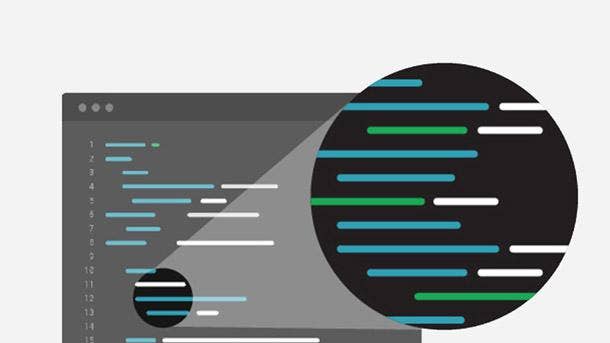
CircleCI Orbs
CircleCI has become a leading CI/CD vendor by delivering the agile development technology through a Software-as-a-Service offering, freeing developers to focus on building products and not managing their DevOps tooling.
With the launch of its Technology Partner Program last year, the startup introduced CircleCI Orbs, a package manager designed for software delivery automation.
CircleCI enables customers to leverage an ecosystem of shareable components available through the company's platform. Orbs defines reusable commands, executors and jobs so that commonly used configuration components can be condensed into a single line of code.
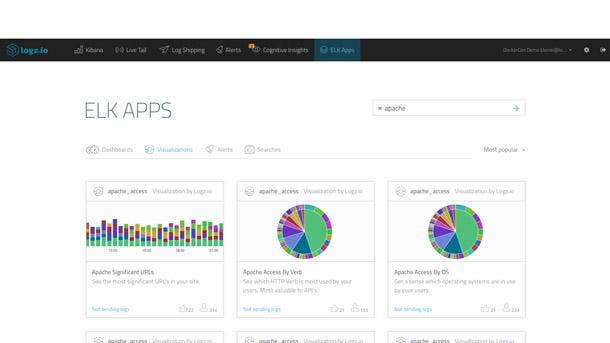
Logz.io ELK-As-a-Service
Logz.io delivers the popular ELK stack of open-source offerings—Elasticsearch, Logstash, Kibana—in a fully hosted managed service enhanced by AI-powered analytics.
The company looks to support DevOps engineers with built-in alerting and crowdsourced machine-learning capabilities.
Logz.io recently introduced its ELK-as-a-Service machine data analytics platform to Microsoft Azure.
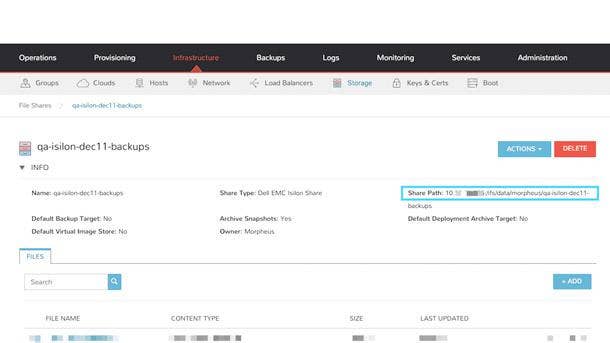
Morpheus v4.0
Morpheus Data delivered a major update to its container management platform this summer with the release of Morpheus v4.0.
The latest version of the DevOps platform provides customers with more options to quickly deploy container clusters across dozens of on-premises and public clouds and hybrid environments.
It embeds the fully managed, Cloud Native Computing Foundation-certified Morpheus Kubernetes Service and offers integration to reduce the security risks and costs when configuring infrastructure with Ansible.
With Morpheus v4.0, the startup looks to offer an alternative to VMware and Red Hat automation services.
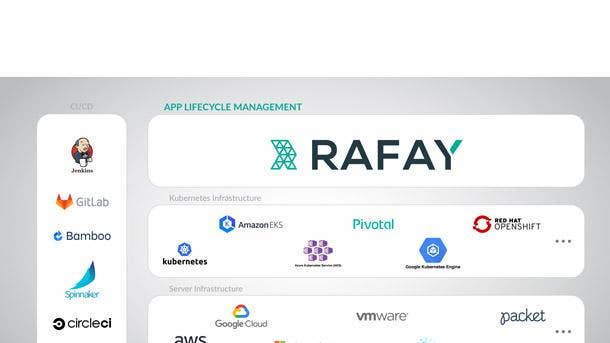
Rafay Systems Kubernetes SaaS
Rafay Systems looks to ease deployment of Kubernetes clusters and life-cycle management of containerized apps across any cloud through a Software-as-a-Service delivery model.
Once enterprises choose containerization to modernize their applications as micro-services, they typically select Kubernetes, the industry's predominant platform for orchestrating container clusters.
That's usually where a time-consuming process begins for DevOps teams in creating the automation frameworks ensuring that applications are properly deployed and managed across heterogeneous IT environments.
With its SaaS deployment model, Rafay abstracts Kubernetes deployment and management, allowing those teams to check a box rather than write a YAML script. The platform further speeds time to market with cluster blueprinting, multi-cluster operations and integration with secrets management and metrics aggregation services.
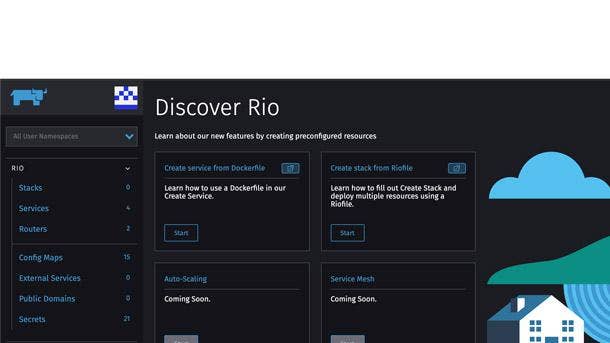
Rancher Rio
Rancher Labs recently unveiled its beta release of Rio, a new application deployment engine for Kubernetes that delivers a fully integrated experience from operations to pipeline.
Rancher Rio reduces the inherent complexity of managing containerized applications. The tool is designed to enable DevOps practitioners to speed the building, testing, deploying, scaling and versioning of stateless apps in any Kubernetes cluster.
Rio includes a lightweight, cloud-native platform for integrated deployment and can be installed using Rancher's App Catalog. It runs on any Kubernetes cluster and is integrated with popular open-source services like Istio, Knative and Prometheus.
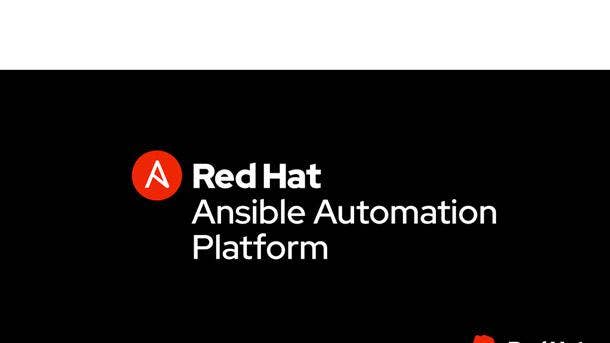
Red Hat Ansible Automation Platform
Red Hat recently unveiled an enterprise-grade offering that enables DevOps teams to automate the configuration of infrastructure at any scale.
The platform integrates Red Hat’s automation suite consisting of Red Hat Ansible Tower, Red Hat Ansible Engine and Red Hat Network Automation along with new Software-as-a-Service capabilities.
Red Hat Ansible Automation Platform aims to help enterprises streamline collaboration between teams to improve operational efficiencies, reduce risks and enjoy consistent user experience across infrastructure and technology domains.
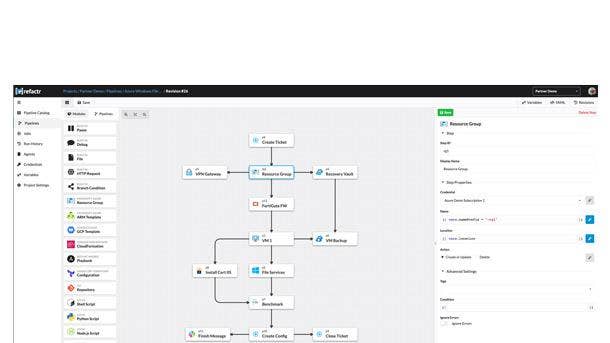
Refactr Platform
Refactr merged its infrastructure management and security automation offerings into a comprehensive DevSecOps platform that enables cybersecurity-focused MSPs to visually design complex service environments.
Refactr Platform combines the startup's two previous products: playbook.cloud, an Ansible-as-a-Service approach to configuration management; and Cloud + Security Architect Platform (CSAP). It also adds support for HashiCorp Terraform, Git repositories and version controlling, Kubernetes, and other technologies popular with DevOps practitioners.
The DevSecOps package empowers MSPs to use an IT-as-code approach that's integrated with existing automation tools they can select and provision through a solution catalog.
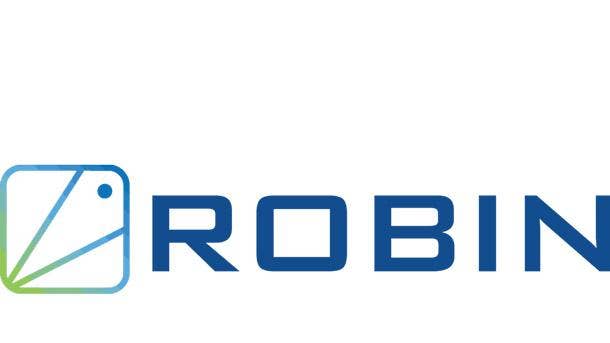
Robin
Robin.io offers the Robin platform for automating the deployment, scaling and life-cycle management of big data, databases and other enterprise apps running on Kubernetes-orchestrated clusters.
The platform is purpose-built for Kubernetes to deliver flexible infrastructure with self-service deployment. Management tooling for the entire application life cycle is natively embedded into the compute, storage and network infrastructure stacks to enable applications to span all on-premises and public cloud environments.
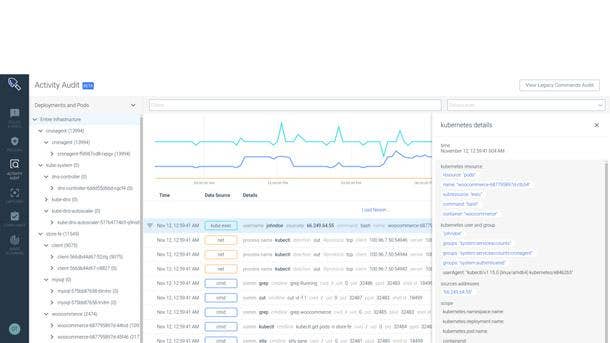
Sysdig Secure 3.0
Sysdig Secure 3.0 introduced the startup's first Kubernetes-native threat prevention and incident response features to better streamline the security burdens faced by DevOps teams.
In its latest major release, Sysdig delivered capabilities that merge security and compliance into DevOps workflows. The new features help enterprises prevent threats, reduce false positives and access data needed for effective incident responses when running workloads in the cloud.
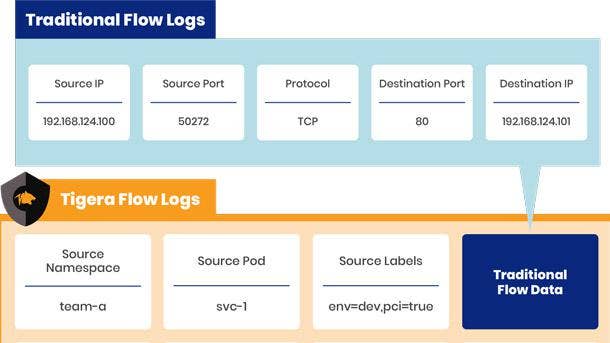
Tigera Calico Enterprise
Tigera focuses on delivering "security as code" to DevOps teams through an open-source networking and network security technology geared for both container and VM environments.
The open-source Project Calico implements a workload-to-workload Zero Trust model for protecting applications built with Kubernetes and modern container architectures.
Calico Enterprise integrates that technology with existing legacy environments, DevOps tools and security operations centers. It offers anomaly detection and traffic visibility to better detect threats, applies security policies and can automate audit reports.
With Tigera's Calico, all traffic is verified with service-to-service authentication that is executed through encrypted channels.